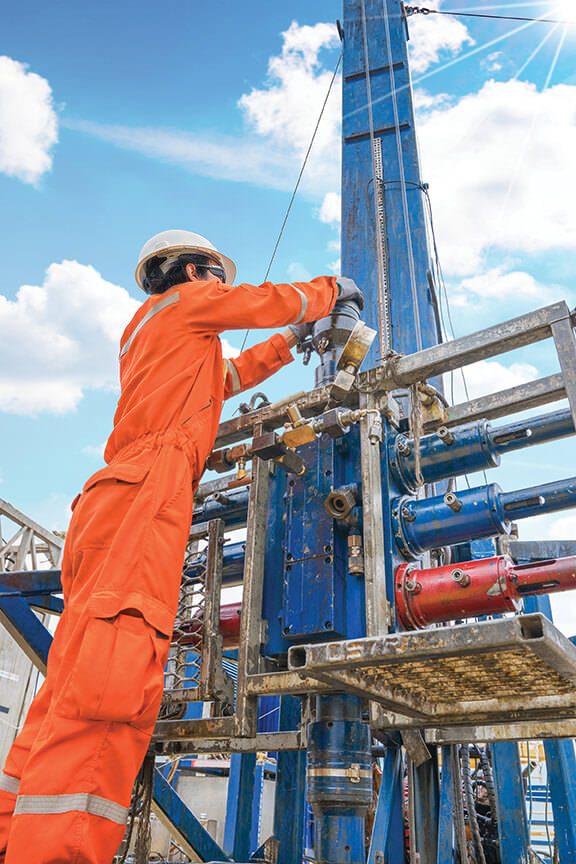
Texas — the first two images that spring to my mind are cattle and oil wells. Thinking a little deeper, I see wide-open spaces, small country churches, good people, BBQ, Tex-Mex and even football. Yes, these are stereotypes of Texas, but usually, stereotypes don’t become stereotypes unless there is at least a small element of truth contained within. Ever since the Spindletop Field blew during 1901, oil and gas production has been synonymous with Texas in myth and culture as well as in economic reality. The cattleman and the oil man are the two iconic personalities that personify Texas and have made it what it has become today.
Currently (2017 figures), 14% of Texas gross product comes directly from the oil and gas industry. Add the indirect contribution and 29% of Texas gross product comes from the oil and gas industry. Texas’ economic success is due in large part to the success of the oil and gas industry. The culture and legends that have made Texas what it is today come mainly from the rural areas and the small- and medium-sized towns that form the core backbone of this state.
Since I moved to Texas in 1981, the population of Texas has increased by about 90%. It was just over 15 million then, compared to over 29 million now. The population of the state is now approximately 80% urban. Texas has changed dramatically over the past few years and is in grave danger of losing its identity of being a distinct culture and community.
More and more the I-35 corridor and Houston are coming to dominate the political, economic, and cultural life of the state. This is changing Texas almost to a point of being unrecognizable. If you don’t want Texas to become indistinguishable from suburban/urban masses in places such as California, Chicago, Atlanta, and New York City, then the state needs to rediscover its traditions.
Yes, there are lots of good folks in Houston, San Antonio, Dallas and Fort Worth — Austin, I am not so sure about. The independence and self-reliance that is so much a part of the Texas mindset comes in large part not from the big cities, but from the land and small-town Texas. If we want to preserve the true cultural heritage of Texas, then we need to preserve the viability of rural, small towns. Many of the best and highest-paying jobs that float the economies of rural Texas come from oil and gas production, as well as related industries.
During the past few decades, the economy of rural Texas has been at risk because of government regulations that hindered the production of hydrocarbons. That no longer seems to be a major problem, but remember, eternal vigilance is the price of freedom. In fact, all commodity producers seem to have a tendency to overproduce; oil, and especially gas producers, are overproducing as the price action of those two commodities indicates. However, there is still a large threat to the Texas economy due to government regulations that will take away markets from oil and gas.
That threat is government actions mandating a certain percentage of the vehicle market be reserved for electric or hydrogen vehicles, and mandating that a certain percentage of electricity be generated by renewable sources. Also, governments are starting to deny natural gas distribution systems and permissions to build pipelines in order to limit natural gas markets.
That is not free-market economics; that is government hostility to hydrocarbons that will hurt the economy of Texas, as well as the entire nation, and indeed, the world. By harming the industry that is the backbone of Texas, the damage will not be limited to economic damage but will also include community and cultural damage. This fall, as you eat some BBQ or Tex-Mex, watch a little football and maybe even go dove hunting, take a little time out to reflect on the importance of the oil and gas industry in Texas, and how you can help keep the industry strong. That keeps the economy strong, and that provides the fuel for Texas to remain a unique place in our world.
About the author: David Porter has served as a Railroad Commissioner (2011–17) and Chairman (2015–16), as well as Vice Chairman of the Interstate Oil and Gas Compact Commission (2016). Prior to service on the Commission, Porter spent 30 years in Midland, Texas, as a CPA working with oil and gas producers, service companies and royalty owners. Since leaving the Commission, Porter works as a consultant for oil and gas companies. He also serves as Chairman of the 98th Meridian Foundation, a nonprofit concerned with water, energy and land issues.














